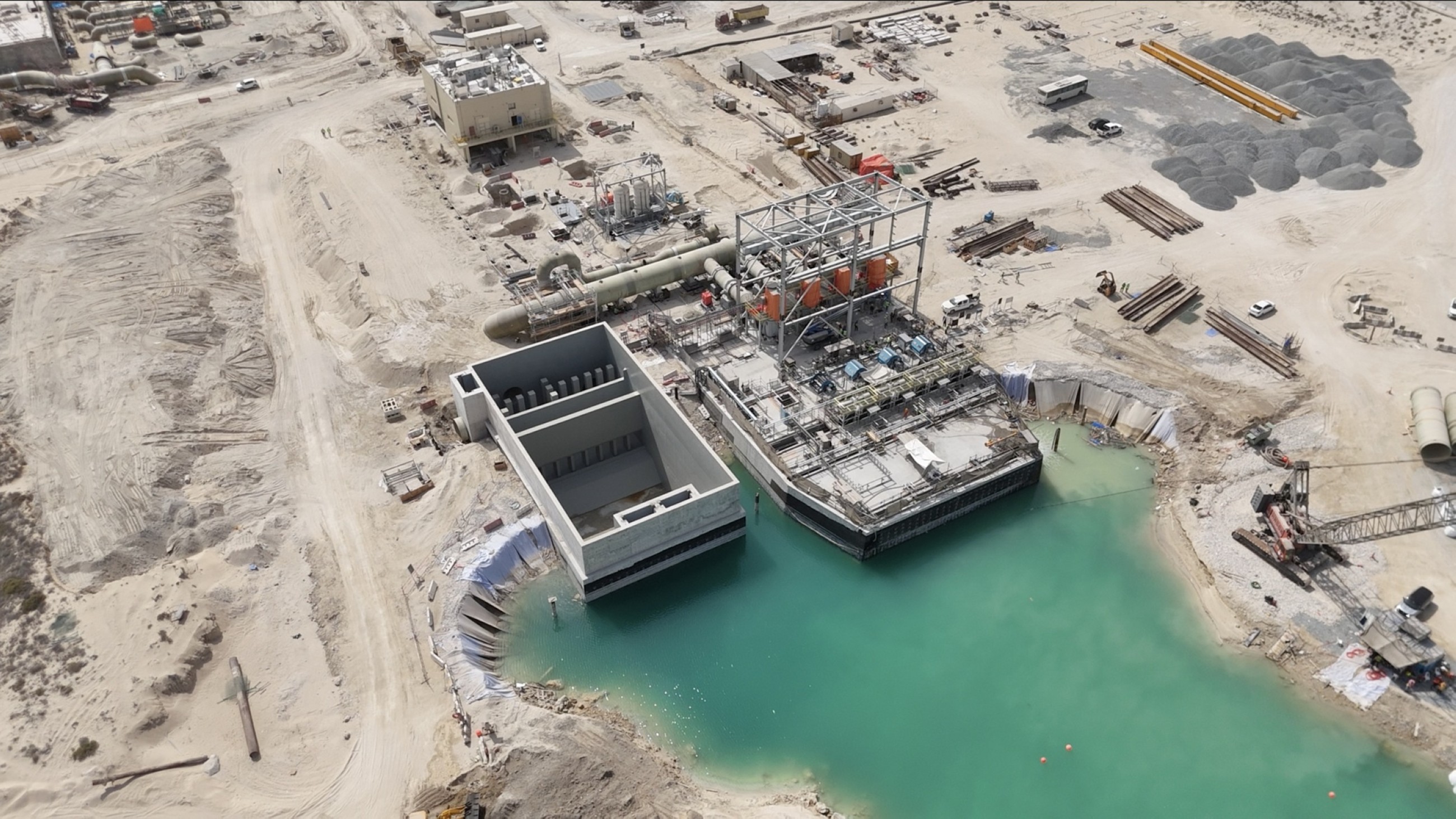Progress of Major Seawater Desalination Plant at Hassyan Complex in Dubai
The ambitious seawater desalination plant project at the Hassyan complex in Dubai has marked a significant milestone, achieving a 78% completion rate. This project, which operates under the Independent Water Producer (IWP) model, is poised to augment Dubai’s water production capacity by adding an impressive 180 million gallons per day to the emirate’s already extensive water supply. All phases of this critical infrastructure endeavor are expected to be finalized by the first quarter of 2027.
This initiative is part of a broader strategy spearheaded by the Dubai Electricity and Water Authority (DEWA) to enhance the region’s water desalination capacity. Notably, it represents one of the largest seawater reverse osmosis (SWRO) projects worldwide, signifying a pivotal moment for DEWA as it engages in its inaugural IWP venture, characterized by investment amounting to a substantial Dhs3.377 billion.
The project garnered attention recently when Saeed Mohammed Al Tayer, the Managing Director and CEO of DEWA, undertook an inspection of the project’s first phase. Accompanied by Waleed Salman, Executive Vice President of Business Development and Excellence, along with various senior officials and engineers, Al Tayer engaged in a comprehensive review of the progress achieved thus far.
In his remarks during the site visit, Al Tayer underscored that this project is in direct alignment with the vision and directives of His Highness Sheikh Mohammed Bin Rashid Al Maktoum, Vice President, Prime Minister, and Ruler of Dubai. The overarching goal is to foster advanced and integrated infrastructure for both energy and water supply, which is essential to accommodating Dubai’s rapid growth and meeting the escalating demand for water resources in accordance with sustainable development objectives.
Al Tayer took the opportunity to tour various segments of the plant, emphasizing its role as a cornerstone of Dubai’s smart desalination infrastructure. This infrastructure is not merely a response to climate challenges but also supports the 2030 Integrated Water Resource Management Strategy. By effectively managing water resources, the strategy aims to optimize the use of existing supplies while ensuring sustainability for future generations.
As part of the project’s advancement, officials from Hassyan Water A, the entity responsible for managing the project, presented comprehensive updates regarding ongoing construction and implementation efforts. The detailed presentations shed light on the project’s operational framework and timelines, highlighting the collaborative efforts involved in achieving sustainable water production.
Looking ahead to DEWA’s future initiatives, it is noteworthy that the organization plans to construct additional desalination plants utilizing SWRO technology. By the year 2030, DEWA plans to enhance its desalination capacity by an additional 240 million gallons per day, which will elevate its total output to an impressive 735 million gallons daily. This commitment underscores a concerted effort to combat water scarcity and sustain a growing population in the Gulf region.
Furthermore, a defining objective of this initiative is to produce 100% of the desalinated water using a synergistic mix of clean energy sources and waste heat by 2030. This progressive move towards utilizing environmentally friendly energy not only reinforces DEWA’s commitment to sustainability but also positions Dubai as a leader in innovative water management solutions.
Dubai’s strategic approach to enhancing its water infrastructure amidst the challenges posed by arid conditions and soaring demand reflects broader economic and environmental imperatives. As water becomes increasingly scarce in the region, initiatives like the Hassyan desalination plant project signify a vital pivot towards sustainable resource management.
In conclusion, the developments at the Hassyan desalination complex exemplify a forward-thinking approach to addressing the dual challenges of water scarcity and environmental sustainability. This project not only promises to bolster Dubai’s water supply but also represents a model of infrastructural growth that aligns with global sustainability trends.
Tags: #UAE #EconomyNews #EnvironmentNews

